Summer 1 Curriculum Maps


Literacy:
This half term, the children will learn about the difference between a fiction and a non-fiction text as they learn about the important people in their community who help them and keep them safe (Police, doctors, firefighters, farmers etc.)



The children will have the opportunity to ask and answer questions about the different professions. The children will continue to develop their phonetic knowledge as they continue to learn and identify the picture rhymes associated with Read, Write Inc. This will support them with their transition in to Reception.

Communication and Language:
The children are now expected to sit for a longer time on the carpet area during group time discussions, actively listening and responding accordingly. The children will continue to respond to instructions including more than one direction (get your coat and line up). The children will develop a sense of time through the days of the week song. They will be encouraged to use past and future tense with more accuracy.
Mathematics:





The children will be encouraged to make marks and symbols associated with numbers to five and beyond. They will continue to count both physical objects and things that cannot be held such as claps, jumps and hops. The children will learn about weight and the different between light and heavy. They will also explore weight when using a set of balance scales.

Nursery Curriculum Map

Summer 1
Understanding the World:
The children will look at the similarities and differences in their communities and the celebrations they take part in within their family. They will talk about the role in society that they can play as well as the roles that their family members play whilst focusing on careers. They will also see that they can pursue any career they wish no matter their gender as they see men and women represented through the carefully chosen texts.
The children will take part in national celebrations as they learn about the coronation of King Charles III.
Expressive Arts & Design:
The children will use their creative skills to make props to support their imaginative play (handcuffs, hosepipes, medical equipment). They will also be encouraged to create things from their own designs and will be helped to develop their ideas. Children will continue to learn and sing familiar nursery rhymes and numeracy songs. They will have access to musical instruments through continuous provision and take part in call and response songs.
Additional Information:
As the warmer weather arrives, we ask parents/carers to ensure that their child has sun cream applied before school. Unfortunately, we cannot apply this in school. We would also encourage a sun hat/cap with a name attached.

Important dates
1st May – Early May bank holiday
8th May – Additional holiday for the coronation of King Charles III
29th May – 2nd June – Half term
Physical Development:
As the warmer weather arrives, the children will have more opportunity to develop their fundamental movement skills in the outdoors. They will have P.E lessons every Monday and begin to use the football pitch where they will play running, catching and kicking games. They will play games that focus on changing direction, stopping and restarting.
Personal, Social and Emotional Development:
Children have more of a sense of risk assessment and danger when discussing the emergency services and their responsibilities. Children will engage in pretend play with their peers and take on imaginary roles. They will also talk about themselves in a positive manner and reflect on their successes when looking back through their floor book and through seesaw posts. Children will continue to learn about healthy food choices and the importance of oral hygiene.
Mathematics:








Children will continue to deepen their understanding of numbers to ten. This will include counting, the composition of numbers (knowing that 5 could be made up of five 1s or 2 and 3 or 4 and 1), and ordering numbers. We will introduce number bonds, doubles and sharing quantities equally. Children will be encouraged to use their mathematical skills during their child initiated learning time and when playing games.

Expressive Arts & Design:
Children have an exciting half-term where they will be making and using lots of props in their learning. The children will create their own spacesuits and tools to use in space. They will also explore a range of different nursery rhymes and songs linked to space. This will include exploring how they can use instruments to create sounds.

Physical Development:
We are excited to be working with some new sports coaches in Reception. They will be helping the children to develop lots of gross motor skills. They will be concentrating on exploring balance and teaching the children to manage and control the movements their bodies make. This will include using apparatus and developing good take-off and landing skills. In class, we will continue to develop strong fine motor skills to support with letter formation.
Reception Curriculum Map

Understanding the World:
Our caterpillars have completed their metamorphosis and are now beautiful butterflies. The children will be releasing them outdoors to continue their life cycle. The children will learning about different astronauts from the past and present. They will learn about some historical events that have taken place in space. The children will continue to be taught about different celebrations/religious events that take place. This half-term will include learning about Eid and the King’s Coronation.
Summer 1
Personal, Social and Emotional Development:
Children have developed strong relationships with friends and familiar adults.
Children will be encouraged to work together to achieve simple goals. They will work on being able to wait for what they want and control their immediate impulses. Children will be encouraged to manage their behaviour and deal with conflict in an appropriate manner.
Literacy:

Communication and Language:
We will be spending lots of time focusing on the children’s understanding of who, what, where, when and why questions. We will also be encouraging children to give reasons to support the answers they give. Children will be support by staff modelling sentence stems. For example: I think…because…
Children will continue to take part in daily phonics sessions.
Children will be becoming increasing familiar with recognising the sounds for each letter of the alphabet and digraphs such as sh, ch, qu, ng, nk, ay, ee, igh, ow and oo. They will be continuing to learn to read and write words, phrases and sentences that including the letters and digraphs listed above. We will continue to enjoy a range of books that link to the space theme. Non-fiction texts will be used to gather information about space.

Additional Information:
Please check all uniform has clear names in (some have faded). Children take coats and jumpers off at playtime and it can be tricky to match them back up to the correct children without the names!



Please ensure children have sun cream applied before school during the summer term. They are encouraged have a named cap/ sun hat to wear outside.
PE days will be flexible this half term. Please ensure your child has their full kit in school at all times (including suitable shoes).
Year 1 Curriculum Map
Mathematics: In Mathematics, we will be exploring numbers to 20 and beyond. We will look at doubling, odd and even numbers, addition and subtraction and measurement. The children will then learn to identify and count coins efficiently in groups of 2, 5 and 10 and will explain the value of 2p, 5p and 10p coins.
Summer 1
Science – Plants:
The children will identify and name different plants and trees. The children will grow their own plants to learn about their structure and requirements to survive. This builds on naming common plants and planting a seed (EYFS).

English:
The children will listen to 8The Queen9s Knickers9. They will create an alternative version of the story they have listened to. They will continue to practice punctuation, formation and basic grammar.
* Link to history – Monarchy





Geography – Where do different animals live?

We will use simple field work and observational skills to study the geography of their school. They will investigate the animals that live in our school grounds and dev is a simple map and use it to plot the location of the different animals found. We will also look at animals found across the world building on our knowledge of continents and oceans.
Art - collage
The children will expore the visual and tactile qualities of natural and manufactured objects. This builds on the children being able to hold drawing tools correctly which they learned in the early years.

DT– How can 2 squares of fabric keep you warm?
They will then move on to The Last Tree. They will retell the story in their own words and think about the importance of the environment and sustainability.
* Link to science - plants

History – What is special about the British monarchy?
The children will explore the concept of empire. They will look at changes in the British monarchy in their lifetime. We will study the life and childhood of Queen Elizabeth 11 and compare this to their own era.
The children will learn how to create a running stitch, selecting the correct tools for sewing and learn how to thread a needle. They will use their skills to create a final piece.

* Link to science and PSHE







Phonics - Children will have a daily phonics lessons and will continue to be taught to read using the Read Write Inc phonics scheme. They will learn 3 new sounds each week and will practise reading words containing new and previously taught phonics through decodable books matched to their ability.

ICT/Computing: Programming






The children will be introduced to animation. They will compare tools, join blocks, make changes, and add sprites, culminating in them designing their own projects. This builds on disciplinary knowledge from Spring 1.
RE –Why is Moses so important to the Jewish faith?
The children will learn the key beliefs and practices of Judaism. They will look at modern day Judaism and learn about the historical foundation of the religion. Children will have opportunities to express their own feelings about these beliefs and practices.




In PE, the children will learn to send and return an object using throwing and catching skills.
Builds on fundamental skills (EYFS)
Music: Pulse, rhythm, active listening, performing and singing.


The children will play games, perform notation as body percussion, identify a variety of instruments by their sound and use them to play simple notations, listen to orchestral/folk/modern music, identify and compare the moods, emotions and genres of two songs. Our learning will culminate in a performance of a folk song. They will end this unit by composing their own simple rhythms.
PSHE: Living in the wider world. We will be exploring the theme of living in the wider world. Looking at community, economic wellbeing and careers. Builds on previous learning in year 1.
Reading and Spellings at home:

To reach their full potential, children must be reading aloud with an adult at home every night. Reading develops skills which are invaluable across the whole curriculum and this extra practise can have a significant impact on the amount of progress made, and the speed in which it is made. When you are reading or practising sounds with your child, please remember to sign in their reading record.
Maths Basic Skills:
Every Friday, we will be having a maths basic skills quiz. This will help the children to improve their fluency of our addition and subtraction skills and help them really embed their number bonds.

Knowledge organisers which outline the key content covered in History, Geography, Science and R.E. will be uploaded onto Seesaw. Please take a look and quiz your child on their newly acquired knowledge!
Homework: In this half term, children will continue to receive one piece of homework each week. The focus will alternate between phonics and maths on a fortnightly basis. Homework will be sent out on Friday afternoons and will be required back in school by the following Friday. Please encourage and support your child with their homework by making sure it is completed.


PE –
Send and return
English:
Our learning this half term will be scorching hot as we embark on a journey to the past and delve into 8The Baker9s Boy and The Great Fire of London9. We will be exploring a range of grammar and vocabulary activities to support us with writing our very own diary entries all about the main events. Following this, we will explore a variety of shape poems and then create our own inspired by our knowledge of the ferocious fire.


*Link to History
Year 2 Curriculum Map

Summer 1
Mathematics:

This half term, we are going to be absorbing lots of knowledge to help us in the real world, starting with money! We will recognise and count coins and notes and solve lots of problems finding change.

We will then move onto fractions and find , º , 1/3 and æ of shapes and amounts.
Science–Animals including humans:
This half term, we will complete our animals including humans topic by rounding off our learning so far.
Extra treats!
Along with a wider selection of books on The Great Fire of London, we will also be reading 8George9s Marvellous Medicine9 by Roald Dahl as a class.

Design Technology

Mechanisms
Are bigger wheels always better?
This term, we will explore wheel mechanisms and creating our own version. We will use our wheel mechanisms to propel a simple vehicle that we create.



Finally, we will recap our knowledge from Year 1 of o9clock and half past, before telling the time to the nearest 5 minutes!
As always, we will continue to build our knowledge, pace and fluency with the 2, 5 and 10 times tables.

Geography - What will we see if we visit London?
We are getting ready to explore our country9s capital this half term!
We will refresh our knowledge of the UK and virtually visit some famous landmarks. We will be comparing London to other places around the globe to help us identify what makes it so special.
*Link to English and History

Throughout summer term, we will move onto our new topic of plants where we will get hands on with some planting of our own, as well as identifying the parts of a plant and the best conditions for a healthy plant to flourish.
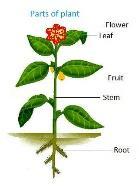
History -


Who was to
blame for the Great Fire of London?


In history this half term, we will be exploring London in 1666 and discovering who was to blame for the Great Fire of London! We will step through a timeline of events that led up to the catastrophic event and evaluate what could have stopped it from happening.
Link to English






ICT/Computing:
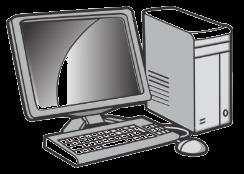


This half term, we will deepen our knowledge of Programming from Spring 1. We will design algorithms and then test those algorithms as programs and debug them if we come across any issues





PSHE: Living in the wider world. Year 2 will be exploring belonging to a community and what it means to look after the world we live in. We will also embark on an investigation into careers.
PE – Send and return:

We will be focusing on being able to track the path of a ball over a net and move towards it. We will begin to hit and return a ball with some consistency and play modified net/wall games. (throwing, catching and sending over a net)

Phonics and Spelling:


We will continue to embed our Set 2 and Set 3 sounds, whilst being introduced to Year 2 spelling patterns to become fluent with our spelling.
Times table Tests: Every Friday morning, we will have a times table test. When your child gets full marks for 3 consecutive weeks, they will move on to the next times tables and will receive a label in their reading record book.



Music:

This half term, we will play drums with Tardis Education. We will be building on beats and rhythms to contribute to whole class performances of short songs.
RE: What is worship/ why is it so important to religious people?
Children will be introduced to the idea that religious beliefs and faith require expression both individually through living and collectively in communities through worship.

Knowledge organisers which outline the key content covered in History, Science and R.E. will be uploaded onto Seesaw
Homework:
Reading at home:
To reach their full potential, children must be reading aloud with an adult at home every night. Reading develops skills which are invaluable across the whole curriculum and this extra practise can have a significant impact on the amount of progress made, and the speed in which it is made. When you are reading with your child, please remember to sign in their reading record for a chance to win fantastic prizes, including Star Reader or the class with the most comment tallies!
In Year 2, children will receive homework through Seesaw every Friday that will consolidate their learning from the week. This is required to be completed by the following Friday. Please support your child with their homework, encouraging them to talk about similar tasks they have been doing in school, so that they become confident. with articulating their learning.

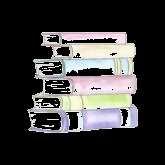
English - Linked to our history topic from last half term, children will use the knowledge from their history lessons to write a biography of King Tutankhamun. They will investigate the components of a biography and apply these to their own writing. Children will also explore 8The True Story of the Three Little Pigs9. They will practise a range of grammatical features in order to write their own traditional fairy tale. Children will delve into the story of 8Lenora Bolt Secret Inventor9 by Lucy Brandt.
Applying the VIPERS reading disciplines, children will broaden and deepen their understanding of vocabulary, inference, predictions, explanations, retrieval and summaries in our whole class reading sessions.
Year 3 Curriculum Map

Summer 1
Mathematics - In mathematics, children will build on their knowledge of the 2 times tables to represent their 4s and 8s. They will explore the relationships between the multiples and solve problems. Children will also recognise, find, write and count in unit and non-unit fractions. They will use diagrams to represent equivalent fractions and identify numerators and denominators to compare and order fractions.
Science – Animals

RE – Who is Jesus?




This half term, children will investigate what is known about Jesus through history and the gospels. They will explore how Jesus is represented through art in different periods and places, thinking about what this conveys and reflecting on their own interpretations.
Geography – We’re Going On A Summer Holiday, But Where? This unit builds upon children9s knowledge of human and physical geographical features and their knowledge of the UK learnt in Key Stage
1. Children will name regions of the UK and identify where would be suitable for a coastal, rural and urban holiday. Linking to our curriculum driver 8Understanding Our Place In The World,9 children will survey people about their holidays.
Humans: Children will explore and compare nutrients in animals9 diets. They will identify and explain the movement of humans in terms of skeletal and muscular structures. Children will build on their knowledge of the parts of the body from KS1 and link their learning to human nutrition from their DT food unit in the Spring term.
Including






DT – Food and Nutrition – What do we mean by a balanced diet?
In this block, pupils will consider what a balanced diet is. They will make three products that are often bought pre-made or highly processed. These dishes will be a fruity yogurt, DIY popcorn and chips! Children will consider the importance of high standards of hygiene throughout the unit.
Art – Textiles – Pattern and Texture
The children will explore pattern and colour combinations, building on prior skills with a range of materials, including collagraph, plasticine blocks and tie-dye. Children will explore positive and negative space as well as line and shape to create a paper collage.
Computing – Programming – Events and Action: Children will explore moving a sprite, creating maze movement, drawing lines and adding features. They will debug movements and complete their unit with a final project.






PSHE – Belonging to
a





Community, Economic Wellbeing
and Careers Children will explore what makes a community, why it is important to save money, and careers based around our food and nutrition unit.
Music: Children will develop improvisational solos in a drumming piece. They will compose tuned accompaniment in a drumming piece including drones.
Times Tables and Basic Skills:
Children should all be able to quickly recall addition and subtraction facts to 100 and the 2, 5 and 10 times tables. This year we will be catering our learning towards the 2, 4 and 8 times tables. It is essential for children to be accurate and quick with tables so that they can confidently access the full maths curriculum. Keep practising for your weekly Friday tests!
Reading and Spellings at home:


PE – Striking and
Fielding:

Building on disciplinary learning in Year 2, children will develop their game skills by adhering to basic game rules of rounders and cricket. Children will become more confident in bowling, catching and striking different ball types.
French:
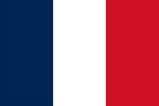
In French, children will recognise landmarks in Cardiff, Belfast and Edinburgh. They will learn how to say how old they are and where they live.
To reach their full potential, children must be reading aloud with an adult at home every night. Reading develops skills which are invaluable across the whole curriculum and this extra practise can have a significant impact on the amount of progress made, and the speed in which it is made. When you are reading or practising spellings with your child, please remember to sign in their reading record for a chance to win fantastic prizes.
Knowledge organisers, which outline the key content covered in History, Science and R.E. will be uploaded onto Seesaw. Please take a look and quiz your child on their newly acquired knowledge!

Homework: In Year 3, children will receive two pieces of homework each week. At home, they will spend time on Lexia and TTRS focussing on learning from our lessons as well as times tables/basic skills practice. Homework will be sent out on Friday afternoons and will be required back in school by the following Friday! Please encourage and support your child with their homework by making sure it is completed on time this will consolidate your child9s learning as well as earning them achievement stars.

English:
This half term, children will be reading 8The Train to Impossible Places9 by P.G. Bell. This text takes the reader on an exciting adventure to magical worlds! The children will explore and create images of made-up worlds before creating their very own advert for an impossible place of their choosing. After they have persuaded visitors to travel to their imaginary place, children will explore features of an informative article and create a piece of writing about the magical train from the text. They will describe its fantastical features using subjectspecific vocabulary.
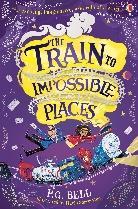
Year 4 Curriculum Map
Summer 1
Mathematics:
This half term, children will be working with fractions greater than one. We will study the relationship between mixed numbers and improper fractions, and will learn how to convert between them.
By the end of this half term, children will be able to accurately place mixed numbers onto a number line, order mixed numbers in ascending and descending order, add mixed numbers and subtract fractions away from mixed numbers.
Science (Physics): Electricity







In summer term 1, the children in Year 4 will sort appliances based on whether they are powered by batteries (DC) or mains (AC) power, as well as exploring renewable energy sources. They will get busy building working series circuits, discovering what features must be included and how they can be adapted, enabling them to investigate the effect of conductors and insulators.
History:
Did the Victorian Empire benefit everyone? This half term, Year 4 will explore the question 8Did the Victorian Empire benefit everyone?9

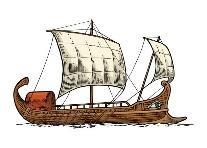



Children will consider the technological advances of the era as well as the role of the British Empire in combatting slavery and promoting democracy. However, children will consider how the Victorian Empire did not benefit everyone. For example, the children will explore the brutal conditions of workhouses for poor people including young children.
Geography: Did the Romans make Britain better?
Building on their knowledge of changing land use from their autumn studies, children will continue to locate a range of countries on a world map and identify how trade links, travel and a more advanced civiliasation might have improved where we live today.

DT: Textiles
Pupils will learn how to sew a button on to a fabric and identify the different functions of fastenings this half term. They will also create a solution to the problem of a towel slipping off a hook!

Art:
Year 4 will be studying the sculpture work of Alberto Giacometti. The children will make human sculptures with a range of materials, including foil and plasticine.
Computing:

Children will be using coding to develop repetition in games. Children will learn how programming languages enable more than one process to be run at once. Children will develop their own games which will contain repeating functions.
PSHE – Belonging to a Community:
PE:
RE – How do Hindus show their devotion to God?

Building on their understanding of religious meaning, children will explore some Hindu ideas about God and explore the concept that God takes many forms.
How do our choices make a difference to others and the environment? Children will explore economic wellbeing and what decisions people can make with money. They will continue to research a range of careers.
The PE unit this half term is tennis. Children will work on their hand-eye coordination skills and learn how to move around the tennis court effectively. Children will focus on improving their footwork at the beginning of the half term before developing their racket skills by practising striking the ball with varying levels of power. Children will also practise hitting the ball onto targets to improve their ball placement skills.
Reading and Spellings at home:


French:

This half term, the children will build on their knowledge of complex sentences by incorporating new fronted adverbials into their writing, including feminine nouns for the first time. This will allow them to practise adjectival agreement when describing the colour of animals.
Times Tables: Children should all be able to quickly recall all times tables up to 12 x 12 = 144 now. It is essential for children to be accurate and quick with tables so that they can confidently access the full maths curriculum. Keep practising!

To reach their full potential, children must be reading aloud with an adult at home every night. Reading develops skills which are invaluable across the whole curriculum and this extra practice can have a significant impact on the amount of progress made, and the speed at which it is made. When you are reading or practising spellings with your child, please remember to sign in their reading record for a chance to win fantastic prizes.
Music:





Children will listen to 8Under Pressure9 and 8We Will Rock You9 by Queen before composing a piece with tuned and un-tuned instruments that include a riff, an ostinato and dotted syncopated rhythm.



Knowledge organisers which outline the key content covered in History, Science and R.E. will be uploaded onto Seesaw. Please take a look and quiz your child on their newly acquired knowledge!

Homework: In Year 4, children will receive two pieces of homework each week. They will have one piece of English or maths homework and one piece focussed on times tables/basic skills practice. Homework will be sent out on Monday and will be required back in school by the following Monday! Please encourage and support your child with their homework by making sure it is completed on time.

English:
Linking to our history learning, children will read 8Vikings in 30 seconds9 and using this to write a non-chronological report about Viking life. In the second part of the term, children will be reading a variety of poetry by Brian Moses before creating their own narrative poem with an Earth and space theme. They will perform their work to an audience using appropriate tone and intonation.
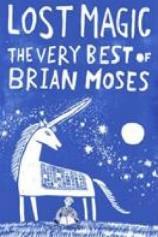

Year 5 Curriculum Map

Summer 1
Mathematics: In mathematics, children will be exploring fractions. They will learn to convert between mixed numbers and improper fractions as well as finding equivalent fractions to be able to add and subtract increasingly complex combinations of fractions. Children will learn to multiply and divide fractions and will convert between fractions, decimals and percentages.
History – Barbaric or civilised: How did the Vikings develop over time? As we learn about the Vikings, we will build on our understanding of civilisation (Egyptians and Romans in year 3, Greeks in year 4 and Maya in year 5). We will make comparisons between the Vikings and other civilisations both at the time and that we have studied. We will learn all about what life was like for the Vikings, as well as their invasions and why some people tried to stop the Vikings. Children will develop chronologically secure knowledge and understanding of this element of history.

Geography – What is the journey of a river? We will build on our learning about mountains and rivers in year 3, looking more in depth at the parts of a river and how land is used around them. We will develop locational knowledge by looking at well-known UK rivers and the regions these flow through, as well as the journey of the River Tyne and what it passes as it flows towards the North Sea. We will look at why it is good to be near the River Tyne, examining what the River Tyne has been used for over the years and how its use has changed. Children will compare places that it passes through now to what they were like in the past.
Science – Forces then Space





Children will explore how mechanisms, including levers, pulleys and gears, allow a smaller force to have a greater effect.
Building on their knowledge of forces, children will describe the movement of Earth and other planets relative to the sun in the solar system. They will use the idea of the Earth9s rotation to explain night and day and the apparent movement of the sun across the sky.
Art – 3D art using clay

Children will explore materials and techniques used to create 3D art. Pupils will develop visual-spatial skills as they analyse the shape and form of 3D objects. They will develop the skills required to manipulate clay, including joining clay by a score and slip method. Children will experiment by creating braids, twists and small discs.
Design Technology – Textiles

Children will investigate the durability of different materials before repurposing a pair of jeans to make a bag. Children will also use beeswax to make a reusable sandwich wrap.

PSHE: Living in the wider world.
Children will explore how they can be an active member of their local community. They debate how taxpayer9s money should be spent to best benefit the community that they live in.

ICT/Computing:






This half term, children will revisit their learning on Copyright and Ownership from Autumn 1. Children will create their own video project using iMovie on an iPad and our green screen, learning to airdrop between iPads, import movies, rearrange the order of their clips, crop their clips and create smooth transitions.


PE – Net and wall games – tennis and badminton:
In PE this term, children will develop a variety of shots in isolation and in game including forehand, backhand and overhead. They will recognise how reaction time can impact on play and umpire a tennis and badminton game.
Music: Children will continue to receive specialist music tuition and widen their musical vocabulary. They also will follow simple musical notation to play tunes on the xylophone.
RE –What does it mean to belong to a Muslim community?

Building on their learning of the Qur9an, and the life and teachings of Mohammad, children will explore how religious beliefs can be expressed in a variety of ways including art and architecture.
Times Tables:

French:
In French, children will build on their knowledge of numbers. They will be able to use ordinal numbers (first, second, third) and further explore the districts of France (arrondissement).

They will also revisit and continue to build upon their ability to tell the time in French and apply adverbs to phrases.
Children should all be able to quickly recall all times tables up to 12 x 12 = 144 now. It is essential for children to be accurate and quick with tables so that they can confidently access the full maths curriculum. We are now having weekly times tables tests to check children9s recall so keep practising regularly at home!
Reading and Spellings at home:

To reach their full potential, children must be reading aloud with an adult at home every night. Reading develops skills, which are invaluable across the whole curriculum, this extra practise can have a significant impact on the amount of progress made, and the speed in which it is made. When you are reading or practising spellings with your child, please remember to sign in their reading record for a chance to win fantastic prizes!
Knowledge organisers which outline the key content covered in History, Science and R.E. will be uploaded onto Seesaw. Please take a look and quiz your child on their newly acquired knowledge!
Homework: In Year 5, children will receive one piece of homework each week relating to work we have done that week. Homework will be sent out on Friday afternoons on Seesaw and will be required back in school by the following Friday! Children can also take a paper copy if they would prefer. Please encourage and support your child with their homework by making sure it is completed as this supports their learning in school.

Year 6 Curriculum Map

English:
This half term will begin with revision on a variety of grammatical devices (word class, tenses, speech and punctuation). As well as this, pupils will examine a plethora of poetry, fiction and non-fiction texts to consolidate a range of reading strategies and comprehension skills. Not only this, pupils will also enjoy reading 8The Boy at the Back of the Class9 by Onjali Rauf. This emotive novel will incite important discussions surrounding discrimination, tolerance and stereotypes; you9re in for a treat, Year 6!
Summer 1
Mathematics:
In mathematics, we will continue to revise key operations and formal methods to aid arithmetic skills. As well as this, pupils will consolidate their understanding of properties of shape such as: nets of shapes, constructing shapes accurately and comparing shapes and their characteristics. As pupils approach secondary school transition, they will apply their knowledge of the Key Stage Two maths curriculum to solve real life, maths-based problems.
Science – Evolution and inheritance.





In this riveting topic, featuring Charles Darwin and Alfred Wallace children will recognise that living things have changed over time and that fossils provide information about living things that inhabited the Earth millions of years ago. In addition to this, pupils will explore the cycle of life through reproduction and discuss how offspring are similar, but not identical to their parents. During this unit, the children will explore Darwin9s theory of natural selection and consider how animals adapt to survive to their environment and query how climate change poses a threat to this, which builds upon their geographical knowledge from Spring 2
RE – How does belief influence life choices?
This half term, the children will recap their understanding of different religions and we will critically analyse how religious beliefs influence some people9s choices. The children will examine their own identity and evaluate their own decision making.



History- How fierce were the Anglo-Saxons?
In history, the children will discover who the Anglo-Saxons were and evaluate the impact their lifestyle had on modernday Britain. Within this unit, pupils will examine significant figures (such as Bede and Alfred the Great) and unearth the influence they had. Using primary and secondary sources, children will uncover facts about their local area. To round off the unit, pupils will collate l facts on Alfred the Great to produce some historical art work.
*Linkstoart.
DT- How strong is a piece of spaghetti?
Children will test the strength of a piece of spaghetti and then use their understanding to construct a 1m tower.
Art- Painting
In this block, pupils will combine techniques learnt in previous lessons to create the illusion of depth and represent the translucent qualities of water.

ICT/Computing: This half term, children will continue to work with www.code.org to build on children9s coding and debugging skills. They will also be utilising their teamwork skills in order to create their own video. They will use the IMovie app to design their video adding sound effects, pictures and using the green screen! *LinkstoPSHE.
PSHE: Living in the wider world
Children will consider how they can be an active member of their community. They will explore different career paths and think about their economic wellbeing.
PE – Tennis and Badminton:
Building on their prior learning from Year 5, children will make good choices in games about the best shots to use in isolation and in game. Also, they will apply a range of defensive tactics in a game, individually and with a partner as well as beginning to explore scoring systems.
French:

In French, children will build on their knowledge of numbers as they develop their understanding of numbers to 100. Using this knowledge, children will begin to ask what time it is and respond appropriately. As well as this, their understanding of number will allow them to learn their 1o, 6 and 4 times tables in French.
Times Tables:
Children should all be able to quickly recall all times tables up to 12 x 12 = 144 now. It is essential for children to be accurate and quick with tables so that they can confidently access the full maths curriculum. Every week they will be tested on one. Keep practising!
Reading and Spellings at home:



To reach their full potential, children must be reading aloud with an adult at home every night. Reading develops skills which are invaluable across the whole curriculum and this extra practise can have a significant impact on the amount of progress made, and the speed in which it is made. When you are reading or practising spellings with your child, please remember to sign in their reading record for a chance to win fantastic prizes.
Assessments





This half term, the children will undertake their SATs exams. This is a crucial time for our children and in order to support them we have a Booster club on a Tuesday evening.


Knowledge organisers which outline the key content covered in History, Science and R.E. will be uploaded onto Seesaw. Please take a look and quiz your child on their newly acquired knowledge!
Homework: In Year 6, children will receive two pieces of homework each week. They will have one piece of English homework and one piece of maths homework. Homework will be sent out on Monday afternoons and will be required back in school by the following Monday! Please encourage and support your child with their homework by making sure it is completed as this will aid them with their transition to secondary school.





























































































